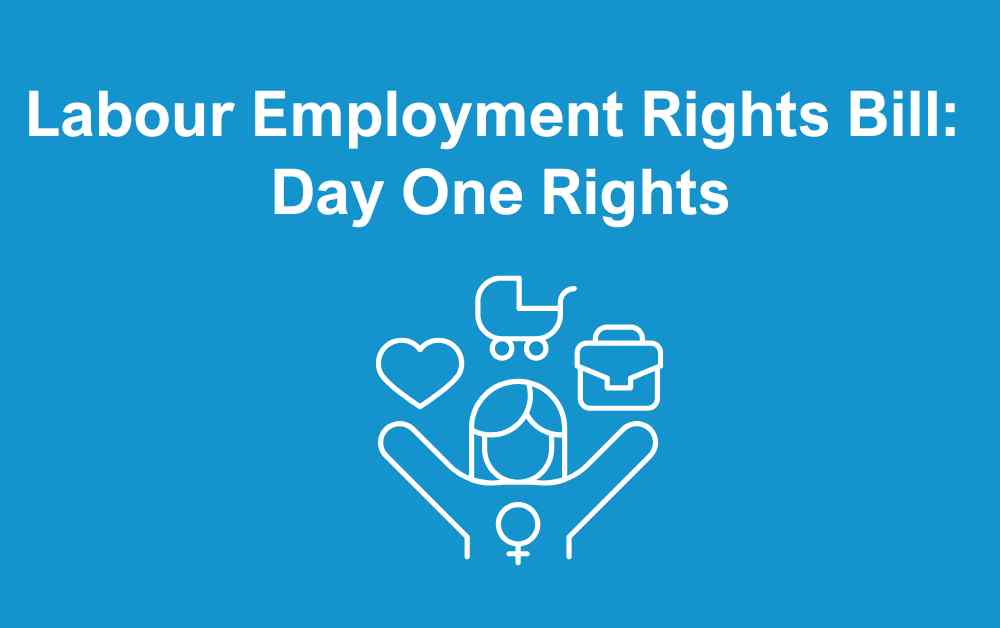The Labour Employment Rights Bill represents a pivotal shift in UK employment with sweeping reforms aimed at enhancing workers’ rights and promoting fairer workplaces. A key focus of this legislation is the introduction of enhanced “Day One” rights and updates to probation period guidelines. This blog post will explore the details of these provisions, their impact on the workplace, and the challenges and benefits for businesses navigating these changes.
What Are Day One Rights?
Day One rights are employment rights that workers are entitled to from their very first day of employment. Historically, many employment rights were only available to employees after a qualifying period of continuous service (e.g., typically two years for unfair dismissal claims). The The Labour Employment Rights Bill aims to eliminate these delays and empower employees from day one. This is in an attempt to enable greater workplace security and fostering a fairer working environment.
Key Day One Rights under the New Bill
The Bill is set to broaden the scope of entitlements for employees. Some of the significant Day One rights include:
Right to Flexible Working
Employees will have the right to request flexible working arrangements from the first day of employment. This will mean staff will no longer have to wait 26 weeks as was previously the case. This shift reflects a growing recognition of work-life balance as a fundamental part of workplace satisfaction and productivity.
Statutory Sick pay
Under the The Labour Employment Rights Bill, employees will receive SSP from the first day of illness. This will remove the current three-day waiting period. Employees can begin receiving financial support for illness immediately. This change will reduce financial strain for those unable to work due to health issues.
Another significant change is that all employees will be eligible for SSP, regardless of their income. Currently, employees must earn at least £123 per week to qualify. The new Bill proposes removing this lower earnings limit. This aims to protect low-income and part-time workers. These employees often work limited hours and may currently miss out on sick pay. SSP payments for lower-earning employees will be at a reduced rate. This reflects the part-time nature of their work.
Under the current SSP system, eligible employees receive £116.75 per week. This applies if they have been ill for more than three consecutive days. The updated The Labour Employment Rights Bill recognises the varied needs of the UK workforce. It ensures more employees can access basic support during illness. For employers, this reform means changes in payroll and administrative processes. It reflects a broader commitment to fairer workplace protections for all income levels.
Bereavement Leave
At present, employees do not have a statutory right to bereavement leave following the death of a loved one apart from parents who experience the loss of a child under 18. Many employers show compassion and grant time off during such difficult times anyway. However, the lack of formal legislation means that some employees may not receive adequate time to grieve. This absence of legal protection leaves room for inconsistencies in how bereavement is handled across different workplaces.
The The Labour Employment Rights Bill will introduce a statutory entitlement to Bereavement Leave. This will mean employees will have the right to take protected time off from day one of their employment to grieve the loss of a loved one. The new measure sets a clear standard for employers and ensures that employees who might not have previously been granted time off will now have this crucial support.
Paternity Leave and Unpaid Parental Leave
The legislation will eliminate the current requirement for employees to have 26 weeks of service to qualify for paternity leave or a year for unpaid parental leave. Under the The Labour Employment Rights Bill, employees will be eligible for both Paternity Leave and Unpaid Parental Leave from their first day of employment, provided they give the required notice. This change aligns Paternity Leave and Unpaid Parental Leave with other parental leave rights, such as Maternity Leave and Adoption Leave, creating a more cohesive approach to parental support.
Additionally, the bill will remove the restriction that currently prevents Paternity Leave from being taken after Shared Parental Leave has started. At present, if fathers or partners opt to take Shared Parental Leave, they forfeit any remaining Paternity Leave not already used. By lifting these restrictions, the The Labour Employment Rights Bill aims to give employees greater flexibility to choose the types of leave that best support their family’s needs when caring for their child.
Unfair Dismissal
The right not to be unfairly dismissed will become a Day One right. This removes the current requirement for employees to have two years of service before they can bring a claim. Once the Government finalises an appropriate probation period, it will be implemented within two years. Reports indicate that the Government is considering a probation period limit of nine months as a likely standard.
Preparing for the Future
To navigate Labour Employment Rights Bill changes, businesses should:
- Review and Update Contracts: Ensure employment contracts reflect Day One rights and are in line with the new probation period guidelines.
- Train HR and Management Teams: Equip HR professionals and managers with knowledge and tools to implement these changes effectively.
- Develop Clear Onboarding Processes: Create transparent processes for new hires that outline their rights from the beginning of their employment journey.
Final Thoughts
The update represents a progressive step towards fairer and more inclusive workplaces. The introduction of Day One rights and updated probation policies sends a strong signal about the value of employee welfare in the modern workplace. While businesses may face initial adjustments, the long-term benefits of an empowered, protected, and motivated workforce are well worth the effort.
By planning ahead and embracing these changes, organisations can create a workplace culture built on trust and fairness. They are also positioning themselves for sustainable growth in a rapidly evolving job market. You can out more about Labour employment rights bill in our recent article on our website.







